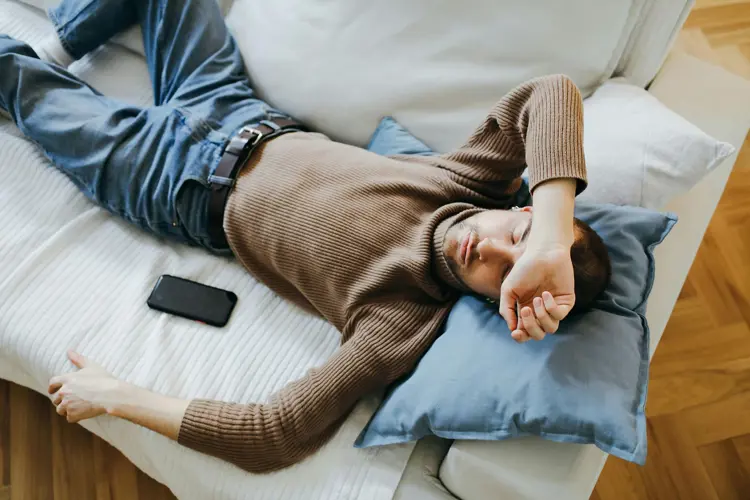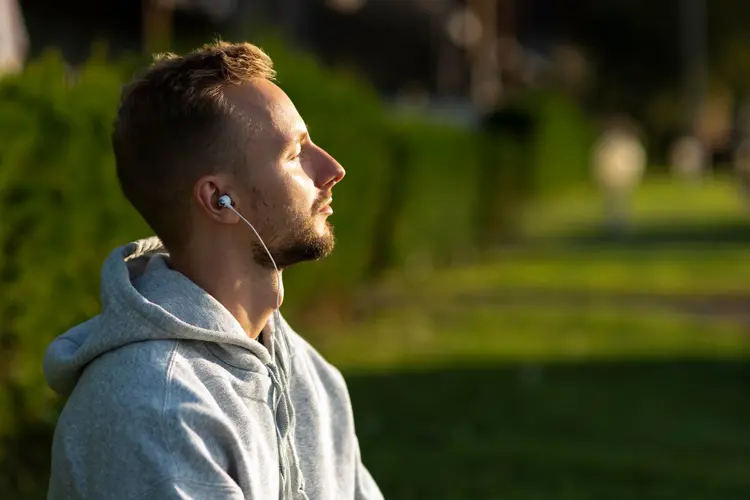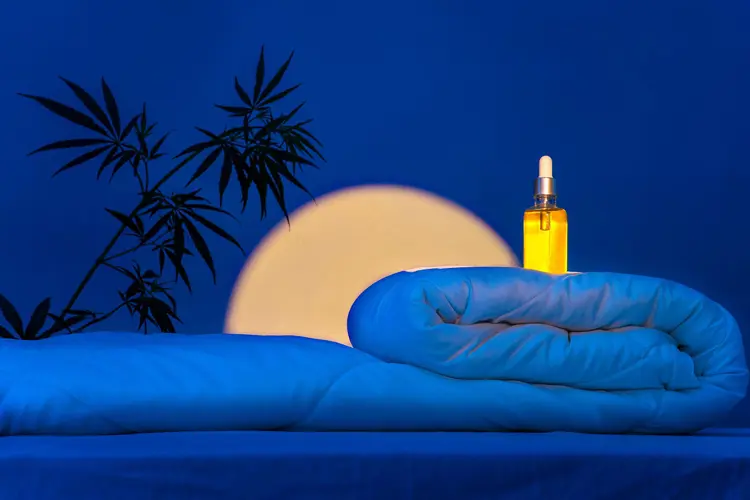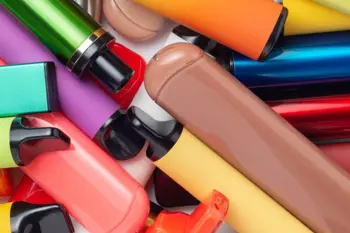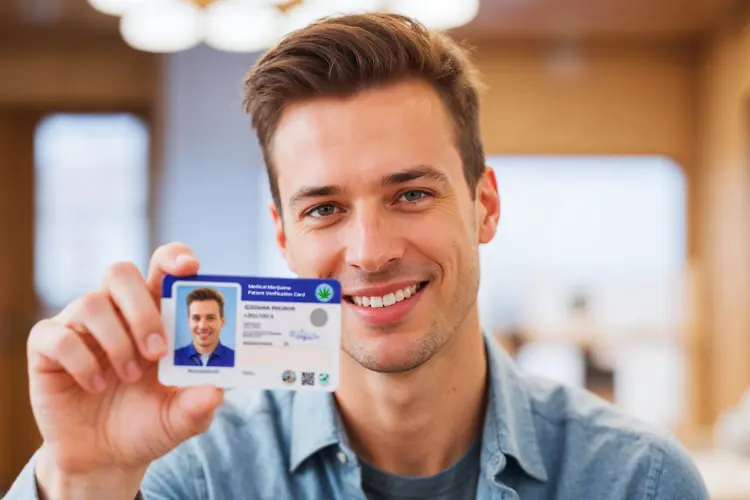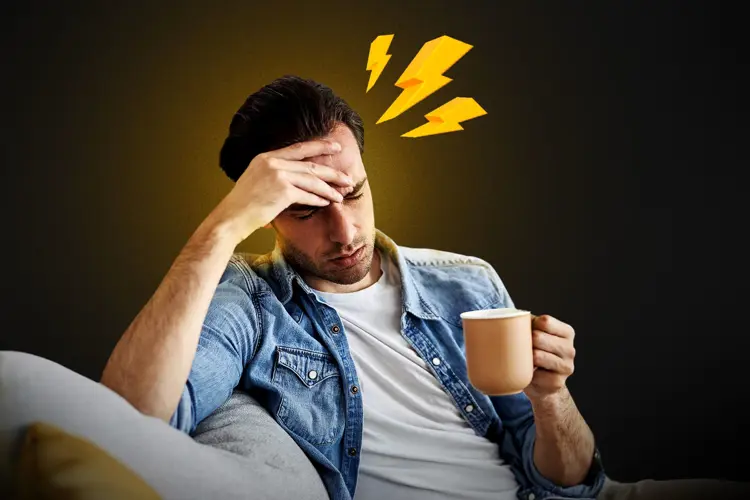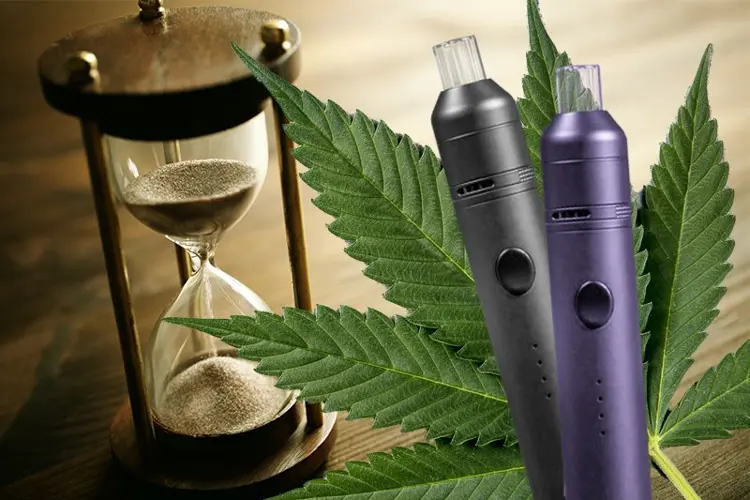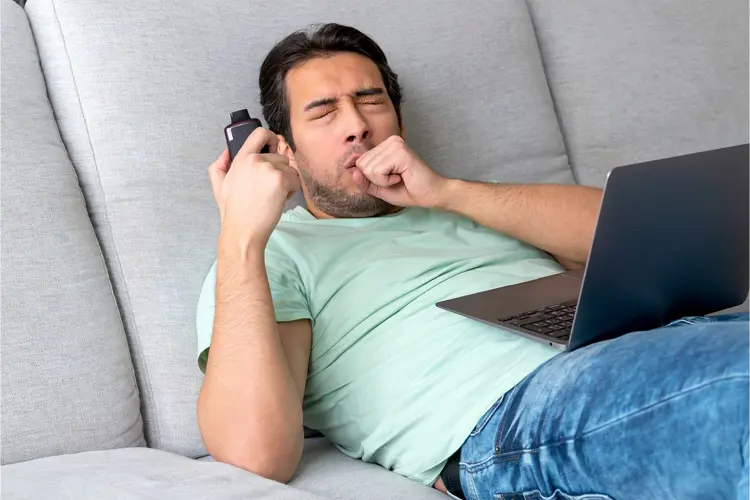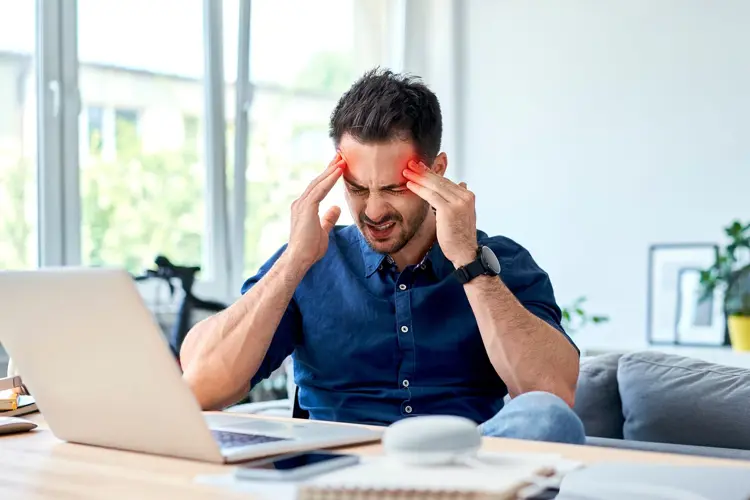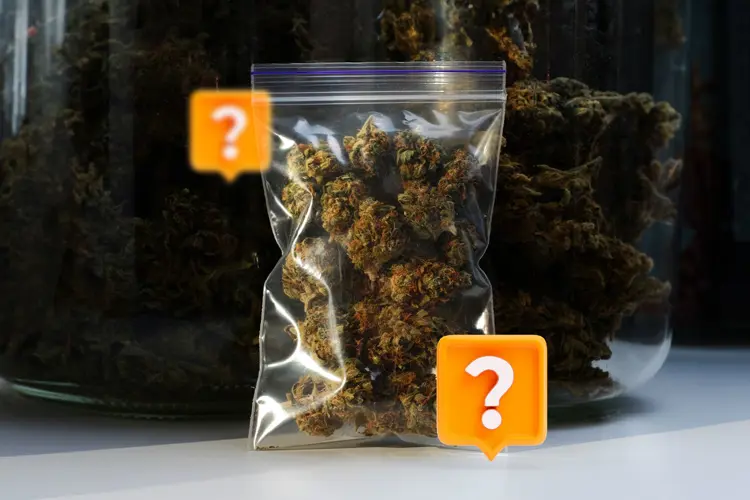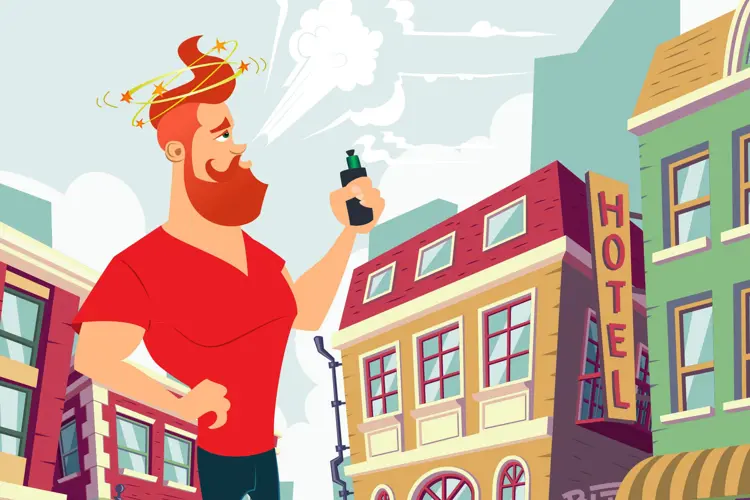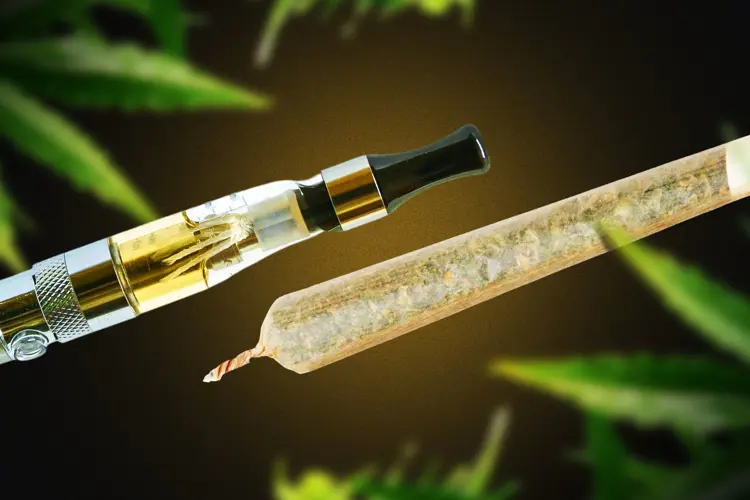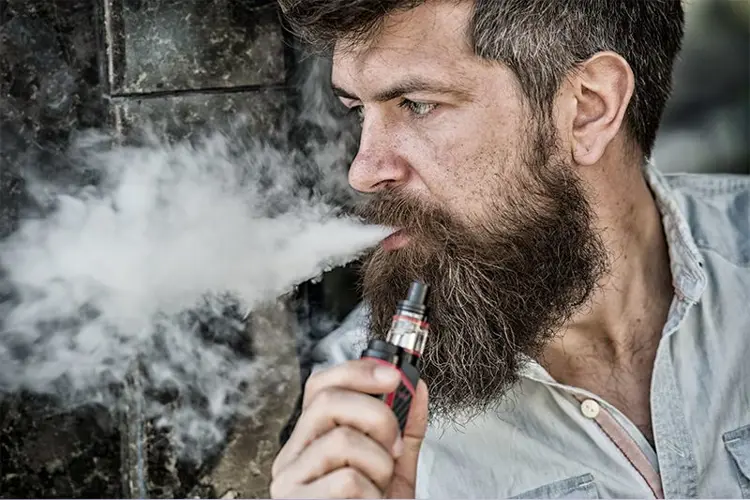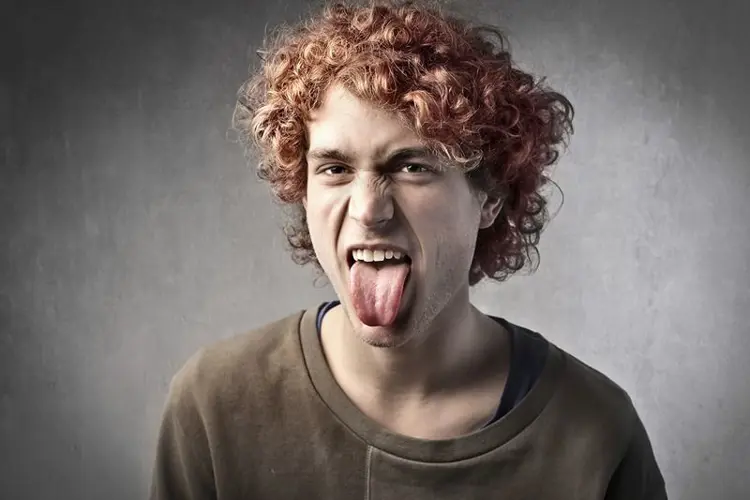Before trying cannabis for the first time, I had an image of what to expect. I thought it would be me loopy, giggly, and maybe a bit sedated. Even then, I didn’t fully grasp just how effective it can be for sleep—which became obvious after my first edible resulted in a two-hour nap.
Cannabis can make us sleepy. Depending on the person, this can be anything from a pesky side effect to the plant’s greatest appeal. After my first encounter with it, this property became the sole reason I consumed cannabis for several months.
But where does hemp-derived delta 8 THC fit into the picture? When it comes to research on cannabis and sleep, most of the focus is on delta 9 THC, CBD, and CBN—not delta 8.
But drowsiness is a commonly reported side effect of many delta 8 products, whether we’re looking at delta 8 carts or tinctures. If it takes a few puffs on a delta 8 disposable or enjoying a fruity delta 8 gummy to put you to sleep each night, then go ahead.
You’re not alone—many people believe delta 8 helps them sleep. But we’re still waiting for the research to catch up. Let's take a closer look at what’s known (or suspected) so far.
How does the ECS affect my sleep?
Even if I had never touched cannabis, I wouldn’t have escaped the human endocannabinoid system (ECS)—nor would I have wanted to. It’s responsible for far more than just getting high. I wouldn’t be breathing or sleeping without it.
The ECS is a vital cell-signaling network. We all have cannabinoid receptors throughout our bodies, and these hotspots play a key role in modulating bodily functions like immune responses, pain management, and, of course, sleep.
Endocannabinoids are chemicals created naturally within the body (no cannabis needed) to modulate cannabinoid receptors, unlike phytocannabinoids like delta 9 or delta 8 THC, which come from the cannabis plant. If I don’t consume the plant, there’s no THC in my body.
Phytocannabinoids can influence the ECS or how each of its branches operates. THC (or any other cannabinoid) can set off an internal domino effect, generally involving short-term chemical changes and effects across the body.
The ECS is complex. I can’t control how my body reacts to cannabinoids, even if I know which receptors I’m targeting. It’s also why your experience could be entirely different than mine, even when we’re both consuming the same delta 8 products.
Does delta 8 THC help with sleep?
The short answer is that delta 8 might help us sleep. But the real answer is more complicated.
Researchers haven’t properly explored how delta 8 influences sleep habits. One paper explains that while delta 8 triggers prolonged sleep in mice, tolerance builds quickly, and the substance’s sleep-inducing effects quickly become less pronounced. Beyond that, research is extremely sparse.
We do know that the ECS has close ties to the sleep-wake cycle, and that delta 9 THC likely has sleep-inducing properties of its own. Because delta 8 interacts with the same ECS receptors as delta 9, we can make some unproven inferences about their potential common effects.
Both cannabinoids bind to CB1 and CB2 receptors—delta 9 THC just does a slightly better job at it. CB1 activation can sometimes encourage sedation. That said, results are mixed on whether THC is an effective long-term sleep aid.
Non-THC cannabinoids (and the receptors they engage with) play their own roles in the process, as do hormones and neurons. It’s a complex system, and we don’t know how much THC contributes to sleep, independent of these other factors. Delta 9 could even impair the actual quality of our sleep.
I suggest trying delta 8 THC in the evening to see if it makes you sleepy. The research can clue us in, but the real-world results come down to our individual bodies.
How to use delta 8 as a sleep aid
When I say “sleep aid” in this context, just remember that we’re in over-the-counter supplement territory. Delta 8 isn’t a pharmaceutical treatment. Turn to a medical professional, not delta 8 THC, if you’re struggling with a major sleep disorder or chronic insomnia.
Prospective users should consider how much experience they have with delta 8, as well as with cannabis in general. I’d strongly recommend taking it slow if this is your first time. We all have unique preferences, and experimentation is key to finding our ideal doses, products, or routines. Remember to:
- Have realistic expectations: Don’t get hasty just because delta 8 is federally legal and milder than delta 9. We need to do our research since this cannabinoid isn’t risk-free, and drowsiness isn’t its only effect. Those who’ve had negative experiences (like panic attacks or hallucinations) with other forms of THC should proceed with extra caution. Delta 8 can have similar effects.
- Explore delta 8 products: Some products blend delta 8 THC with other cannabinoids (CBD, CBN) or even non-cannabinoid sleep-inducing ingredients (like the hormone melatonin). The delivery method also plays a role, whether I’m consuming a delta 8 tincture, vape oil, edibles, or infused hemp bud.
- Dose delta 8 mindfully: Patience is key. Sure, taking an enormous dose right off the bat might knock me out faster—or it could lead to serious adverse effects, including hallucinations and vomiting. I’d start with half a gummy, a single softgel, or a couple of puffs on a vape.
Sadly, none of us can skip the trial-and-error stage. Variables like tolerance, weight, and health conditions all contribute to how the body processes delta 8 THC.
Cannabinoids for sleep: which is best?
So, the ECS plays a pivotal role in sleep. That must mean that delta 8 isn’t the only cannabinoid worth our (bed)time, but how does it compare to the other options?
Delta 8 vs. CBD for sleep
I’d call CBD’s relationship to sleep an interesting one, and not always obvious.
First, CBD isn’t a sedative—at least not in the way that delta 8 THC might be. CBD isn’t sleep-inducing because it activates CB1 receptors. Instead of interacting with them, CBD steers other cannabinoids (including THC) away. Thus, I won’t get high from consuming CBD, and it may make me less high if I’ve also consumed THC.
One possibility is that CBD reduces time spent in rapid eye movement (REM) sleep. REM is restorative and necessary for good-quality rest, but the brain is more active during REM than it is at any other sleep stage. Too much REM—and not enough deep sleep—can leave anyone feeling groggy.
There are other potential links between CBD and sleep, too. While researchers haven’t worked out how effective it is as a general sleep aid, CBD seems to reduce disturbances and improve sleep quality in those with post-traumatic stress disorder (PTSD).
Less directly, CBD appears to soothe pain, inflammation, and even stress. Better physical and mental wellness can make it easier to fall and stay asleep.
Delta 8 vs. CBN for sleep
Unlike delta 8 THC, it’s not hard to find research suggesting CBN as a potential sleep aid. It could help us fall and stay asleep, all while minimizing disturbances and nighttime awakenings. Researchers just haven’t pieced together why.
Originally, it looked like CBN was only useful for sleep when mixed with THC, but more recent studies suggest that it could also be valuable on its own. This lines up with my own experience and the abundance of CBN anecdotes I’ve encountered on cannabis forums.
A study published in October 2024 found that CBN increased both REM and non-REM sleep in mice and that its effect on non-REM sleep was comparable to the sleep medication Zolpidem (Ambien).
It’s still possible that the placebo effect plays a role, given the current enthusiasm around CBN. If you anticipate sleepiness, it may be more likely to happen.
So far, research doesn’t bear out the many anecdotes about CBD amplifying CBN’s sleep-inducing effects, but that may be something to watch for in the future.
Delta 8 vs. delta 9 for sleep
I wouldn’t pit delta 8 against delta 9 THC here, at least for now.
Studies on THC and sleep primarily focus on delta 9 THC. That’s what I’m looking at when I discuss delta 8 THC’s potential as a sleep aid, since there doesn’t seem to be any research unique to delta 8 and sleep yet. The two cannabinoids are very similar in known effects, so I believe they may share other, yet-unproven commonalities.
Until science catches up, I can only guess which is the better option for sleep—but overall potency could play a role. For better or for worse, delta 9 tends to hit harder than delta 8 THC. It’ll get me higher (and may increase my risk of an adverse experience).
Delta 9 has better CB1 receptor binding affinity than delta 8. Whether this translates into easier sleep is unclear, though it’s a potential point in delta 9 THC’s favor.
When should I take delta 8 for sleep?
For me, I’ve found that it’s highly dependent on several variables:
- Delivery method
- How tired I already am
- Whether I’ve recently eaten (potentially)
I’ll keep each of these in mind if I’m consuming delta 8 before bed. The delivery method should be a consideration for anyone, as different forms of THC take longer or shorter periods of time to take effect. Delta 8 THC also tends to hit me more rapidly if I’m already tired, or if I haven’t eaten recently (in the case of edibles). It could be different for you.
Lung membranes are the most efficient route to the bloodstream. Since I may feel the effect in as little as five minutes when vaping delta 8, it’s important to adjust accordingly.
With delta 8 edibles—including capsules, gummies, or other treats—the high is a waiting game. Compared to our lungs, the digestive tract takes its time absorbing and processing cannabinoids. That could mean two hours or more of waiting. I’d encourage caution for anyone who’s never consumed edibles before and suggest not taking them too early in the evening.
Delta 8 oils and tinctures sit somewhere in the middle. Sublingual (under-the-tongue) absorption is quickest, while oil that’s swallowed or taken in food is under the digestive system’s control.
Lastly, we should pay attention to the stage at which delta 8 makes us drowsy. It could be at the high’s peak, before the other effects set in, or as we’re coming down.
Does delta 8 have any side effects as a sleep aid?
As far as sleep aids go, delta 8 THC doesn’t have the most overwhelming side effects around.
Just be realistic. Some people claim that delta 8 keeps all THC side effects at bay, which is misleading at best. What is true is that delta 8 is around half as potent as delta 9. That doesn’t mean I'm in the clear as far as adverse reactions go, sadly. Potential delta 8 side effects include:
- Dry mouth
- Appetite changes
- Disorientation or confusion
- Changes in mood
- Altered senses
- Dizziness
Rarely, users may experience paranoia, hallucinations, or rapid heart rate, especially with high doses of delta 8 THC. These are all cues to cease use right away. Starting slowly makes it easier to catch side effects before they get serious.
Is it safe to take delta 8 for sleep?
Delta 8 is generally safe to use for sleep, but there are exceptions.
Is the delta 8 product from a trusted retailer with transparent safety testing? I’d strongly suggest double-checking that the brand provides a certificate of analysis (COA) for every batch of product. This document should be accessible on their website, if it’s available.
Hemp is federally legal thanks to the 2018 Farm Bill (though state laws vary), but it isn’t regulated for safety. Companies aren’t required by law to have their products third-party tested. It’s up to us to check. Stay away from manufacturers that aren’t willing to show test results.
We need to use common sense when taking a new cannabinoid—or any new substance. Start with a small dose if you’re new to delta 8 THC, and stop taking it if you notice serious side effects, including those described above. Not everyone responds well to cannabinoids—even the safe ones.
President Trump promised during his election campaign to “save vaping," but his administration has undermined that goal at every turn.
The U.S. disposable vape market has grown to $2 billion in annual sales, although nearly none of the products are authorized by the FDA.
More than 30 bills that would impose severe restrictions vaping consumers’ product choices remain active in U.S. state legislatures.
The Freemax REXA PRO and REXA SMART are highly advanced pod vapes, offering seemingly endless features, beautiful touchscreens, and new DUOMAX pods.
The OXVA XLIM Pro 2 DNA is powered by a custom-made Evolv DNA chipset, offering a Replay function and dry hit protection. Read our review to find out more.
The SKE Bar is a 2 mL replaceable pod vape with a 500 mAh battery, a 1.2-ohm mesh coil, and 35 flavors to choose from in 2% nicotine.

